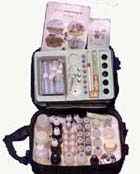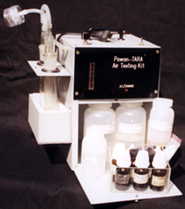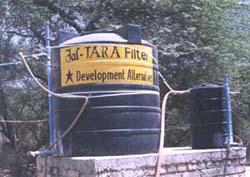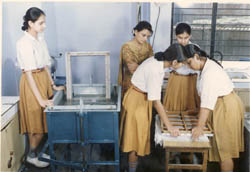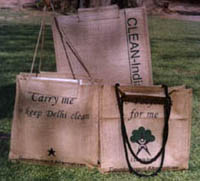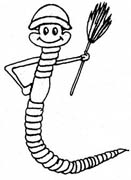|
Addressing
Environmental Concerns Asha Chaturvedi, Vice Principal, Choithram School, CLEAN-Indore T he phenomenal growth of population, poor industrialization and the growing use of private transport in our cities have put our infrastructure and natural resources under immense pressure. Public apathy and helplessness towards dirty surroundings and worsening living conditions have degraded our quality of life. Introduction of new technologies and a behavioural shift towards more efficient utilization of resources and conservation of the existing ones – are two possible solutions. In the face of Air and Water pollution, dwindling water resources and crumbling infrastructure, we (being a school) are working towards creating an Informed Citizenry for the cities of tomorrow and the world at large — whereby environmental conside-rations become part of our daily decision making process.Eco-Habits We catch our children young when it comes to eco friendship. Year after year, skits have been a part of the junior school assembly to ingrain good habits like conservation of resources, maintenance of cleanliness in the surroundings, reduction in noise pollution, reuse of polythene and paper, protection of life-giving trees and what not. The two extremely valuable resources – water and electricity – are seldom wasted. Over the years, due to the efforts of the teachers, students are in the habit of switching off lights and fans and turning off the taps. The use of fresh thermocol in model-making has become a matter of the past. The visitor’s-slips at the School Reception are made out of our stationery waste, though the school can well afford the luxury of brand new printed slips with the facilities of in-house printing.Under our SAVE PAPER MOVEMENT, many students are already in the habit of making note-books from the unused pages of the previous year’s copybooks. All the departments – be it Art, Computer, Examination or Reception - are now out to save paper. For the first time, the school newsletter was sent by e-mail to all those students who had e-mail addresses of their own. The plan for a book-bank is ready for the next year. Students willing to devote their old books would be asked to enroll themselves at the beginning of the year. Apart from saving paper, it would set a healthy precedent to our children and encourage fellow-feeling among them. Eco-Festivals Before every Diwali, anti-cracker campaigns are launched. Students bring sweets and fruits for the underprivileged, with the money saved from not buying crackers. Even Ganesh Utsav and Holi are celebrated in an eco-friendly way. The Art Department has taught the students to make soluble clay idols of Ganesha with ordinary clay, cotton, tamarind-seed powder and water. Turmeric and brick powder are used to colour the idols. Assembly speeches have made the children aware of water pollution and clogging of water bodies due to the immersion of idols made of Plaster of Paris. A demonstration of natural Holi colours has also been conducted, along with posters and skits. Thus the whole community, with the support of CLEAN-India and the Principal, has really turned into a Green Brigade. The use of poly packs for sweets and lunch packets on occasions like national and school festivals has been done away with. Love for Nature The whole campus is green throughout the year. There are around 350 trees and 200 shrubs of at least 21 varieties, apart form flowering plants and creepers. Hardly any child ever plucks a flower. Two major Eco-projects accomplished by the students of Class XII recently are: - The Nomenclature of the plants and trees on the campus - The Vermicompost pit for the School
Water of Choithram The water supplied in the school for drinking is fit to be drunk straight from the tap. There have been no complaints at all for the last three decades and a half. The credit goes to the founding fathers who had two huge wells dug up, covered and maintained till date. Our students also test water from water sources, using the Jal TARA Kit provided by CEPRD ( the CLEAN-India NGO partner in Indore).The Best Eco-Friendly School Award As a culmination of these on-going efforts, the M.P. Pollution Control Board has chosen Choithram as the Best Eco Friendly School of Indore District, Madhya Pradesh, for the Year 2002-03.Welcome to envy, as long as you are Green!! q
|
||||||||||||||||||||||||||||
 A
huge Water Recycling Plant and a Project for Harvesting Rain Water
have been put into action since October 2001. It is because of this
invaluable gift that the sprawling lawns and the lush green bushes,
creepers and trees spread all over the campus of the School have
survived even in the face of the scanty rainfall witnessed by Indore.
A
huge Water Recycling Plant and a Project for Harvesting Rain Water
have been put into action since October 2001. It is because of this
invaluable gift that the sprawling lawns and the lush green bushes,
creepers and trees spread all over the campus of the School have
survived even in the face of the scanty rainfall witnessed by Indore.